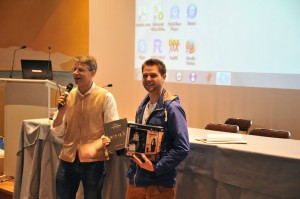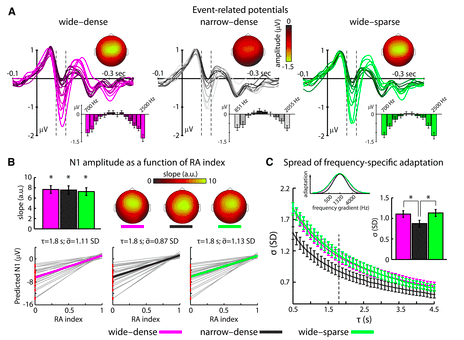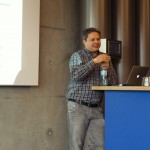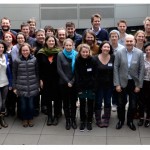Quite recently Cerebral Cortex published
Alpha Oscillatory Dynamics Index Temporal Expectation Benefits in Working Memory
by Anna Wilsch, Molly J Henry, Björn Herrmann, Burkhard Maess, and Jonas Obleser.
Check the abstract below or follow that link to get the full article.
Abstract
Enhanced alpha power compared with a baseline can reflect states of increased cognitive load, for example, when listening to speech in noise. Can knowledge about “when” to listen (temporal expectations) potentially counteract cognitive load and concomitantly reduce alpha? The current magnetoencephalography (MEG) experiment induced cognitive load using an auditory delayed-matching-to-sample task with 2 syllables S1 and S2 presented in speech-shaped noise. Temporal expectation about the occurrence of S1 was manipulated in 3 different cue conditions: “Neutral” (uninformative about foreperiod), “early-cued” (short foreperiod), and “late-cued” (long foreperiod). Alpha power throughout the trial was highest when the cue was uninformative about the onset time of S1 (neutral) and lowest for the late-cued condition. This alpha-reducing effect of late compared with neutral cues was most evident during memory retention in noise and originated primarily in the right insula. Moreover, individual alpha effects during retention accounted best for observed individual performance differences between late-cued and neutral conditions, indicating a tradeoff between allocation of neural resources and the benefits drawn from temporal cues. Overall, the results indicate that temporal expectations can facilitate the encoding of speech in noise, and concomitantly reduce neural markers of cognitive load.
References
- Wilsch A, Henry MJ, Herrmann B, Maess B, Obleser J. Alpha Oscillatory Dynamics Index Temporal Expectation Benefits in Working Memory. Cereb Cortex. 2014 Jan 31. PMID: 24488943. [Open with Read]
Enhanced alpha power compared with a baseline can reflect states of increased cognitive load, for example, when listening to speech in noise. Can knowledge about “when” to listen (temporal expectation […]


















